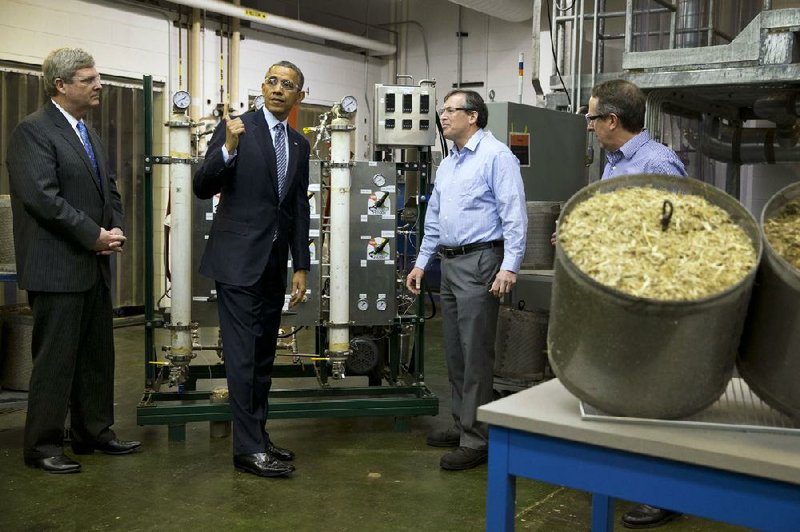WASHINGTON - President Barack Obama on Friday signed legislation setting U.S. agricultural policy for five years as economists forecast farming profits in 2014 will drop from last year’s 40-year high.
The law, which passed with bipartisan support, will have far-reaching effects beyond farms, helping with research and infrastructure and boosting jobs, Obama said at Michigan State University in East Lansing.
“It’s like a Swiss Army knife,” Obama said. “It multitasks, it’s creating more good jobs, gives more Americans a shot at opportunity.”
The law cuts food-stamp spending by about $8.6 billion over a decade with some increases in other food programs and replaces a $5 billion annual crop subsidy to farmers with subsidized federal crop insurance as the main safety net for farmers.
Scores of U.S. companies had a stake in overhauling the farm law, because the commodities represent the raw ingredients - and costs - for food processors.
At least 350 companies and organizations, including Monsanto Co., PepsiCo Inc. and Dean Foods Co ., registered as lobbyists in 2013 to work on the Senate version of the farm bill, spending $150 million, according to the Center for Responsive Politics, a Washington organization that tracks lobbying.
Obama went to East Lansing to sign the bill in the home state of Senate Agriculture Committee Chairman Debbie Stabenow, a Democrat. While the White House cited the farm bill as an example of bipartisan effort, there were eight Democrats and no Republicans at the signing. The White House extended about 50 invitations to members of both parties for the event, White House spokesman Jay Carney said.
“I’m eager to work with Congress wherever I can,” Obama said as he urged lawmakers to use the legislation as an example of cooperation.
Several of Obama’s proposals aimed at boosting growth, including raising the minimum wage and spending on transportation projects, have been blocked by Republicans in the House of Representatives.
He also made reference to his push for a new immigration law. House Speaker John Boehner of Ohio cast doubt yesterday on a revamp of immigration policy this year, saying Republicans don’t trust the president to implement the terms they would seek to negotiate.
The new farm law calls for spending $956.4 billion over 10 years - $16.6 billion less than current levels, according to the Congressional Budget Office. The administration said it will provide farmers with five years of certainty, encouraging stability and new investment.
The legislation subsidizes crop insurance and funds purchases at grocers with food stamps, its biggest cost.
Net farm income of $131 billion in 2013 may not be reached again for several years and may fall as much as one-quarter, said Nathan Kauffman, economist for Federal Reserve Bank of Kansas City. Gains in farmland values that climbed 37 percent since 2009 are slowing, and the law will trim government spending on agriculture, further denting profits.
“We’re seeing a softening,” Kauffman said Thursday. “We’ve been anticipating this for some time, and there’s a general expectation that income will be lower this year.”
The U.S. Department of Agriculture will release its first forecast for 2014 farm profit Tuesday.
Information for this article was contributed by Alan Bjerga of Bloomberg News.
Front Section, Pages 2 on 02/08/2014
